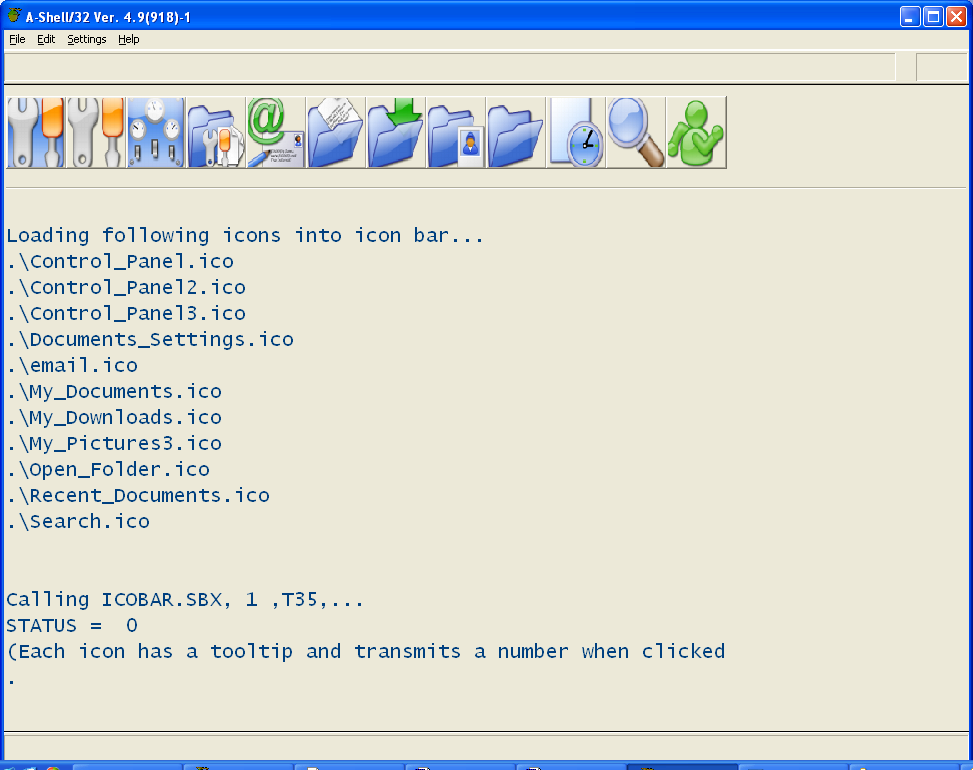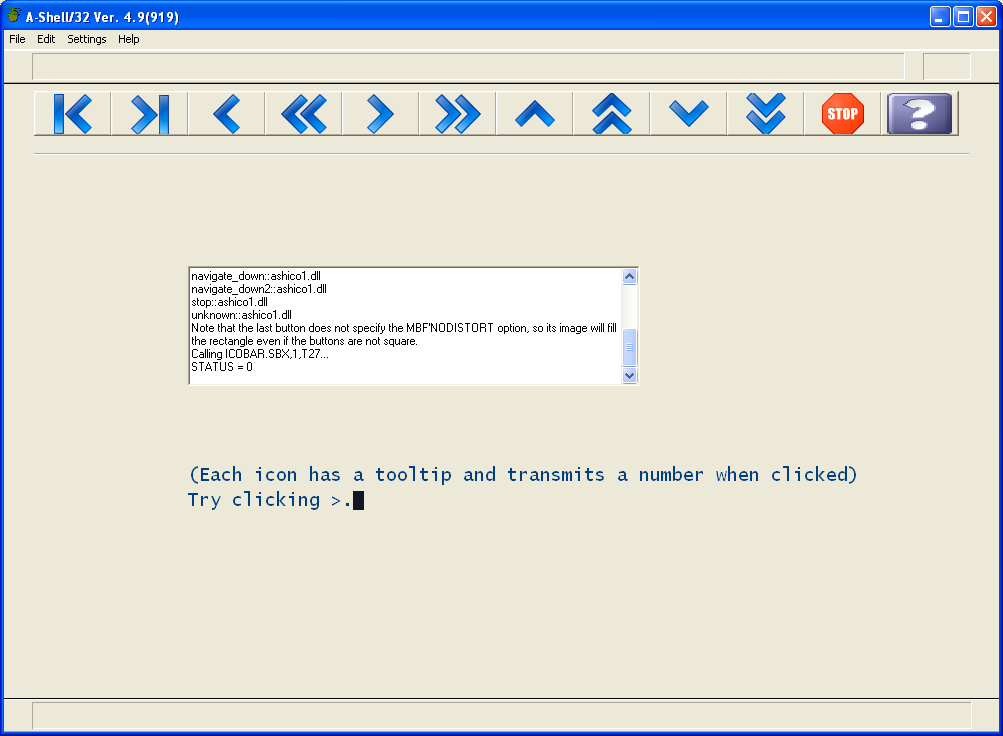Button icon controls are typically used for icons intended to be clicked on to perform some action, as in this sample (TSTICB, which uses the subroutine ICOBAR. SBX):

Button icons use the ctype combination MBF_BUTTON + MBF_ICON. In most cases, you would also add the MBF_KBD type to specify a string to be sent when the button is clicked.
Button icons can be loaded individually from .ICO files, or via resource names from a DLL. (As of build 919, they do not support the Windows internal icon resources such as "#question.") To load an icon into a button from an ICO file, just specify the ICO filespec in the ctext parameter, either using AMOS or native syntax, for example:
xcall AUI, AUI_CONTROL, CTLOP_INFO, id, ".\control panel.ico", MBST_ENABLE, MBF_BUTTON + MBF_ICON, cmd$, "", status, srow, scol, erow, ecol, -2, -2, 0, 0, "", "", grpid1
To use an icon resource from a DLL, use the same syntax as for static icons, i.e.:
xcall AUI, AUI_CONTROL, CTLOP_INFO, id, "navigate_down::ashico1.dll", MBST_ENABLE, MBF_BUTTON + MBF_ICON, cmd$, "", status, srow, scol, erow, ecol, -2, -2, 0, 0, "", "", grpid1
Unlike static icons, button icons are scaled to fit the button. However, this can sometimes result in a distorted look if the button is not square. (In the example above, the buttons are slightly taller than they are wide, which results in a slightly "squeezed" look.) To prevent that kind of distortion, you can add the flag MBF_NODISTORT, which forces it to retain the original square aspect ratio. The example below illustrates some icons from the ashico1.dll displayed as buttons with the MBF_NODISTORT flag (all except the last icon, which illustrates what it would look like without the MBF_NODISTORT.

See Also
The sample dialogs under Groupbox + MBF_ALTPOS for a good example of how using an icon on a button can be much easier to understand than text in a foreign language (which may be how your application appears to even native users.)